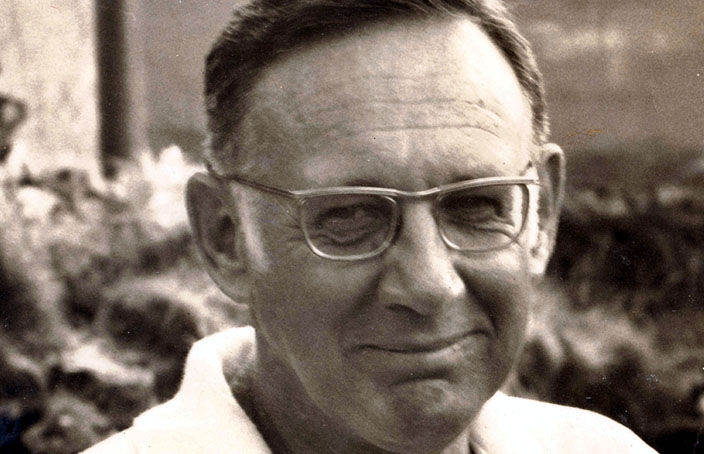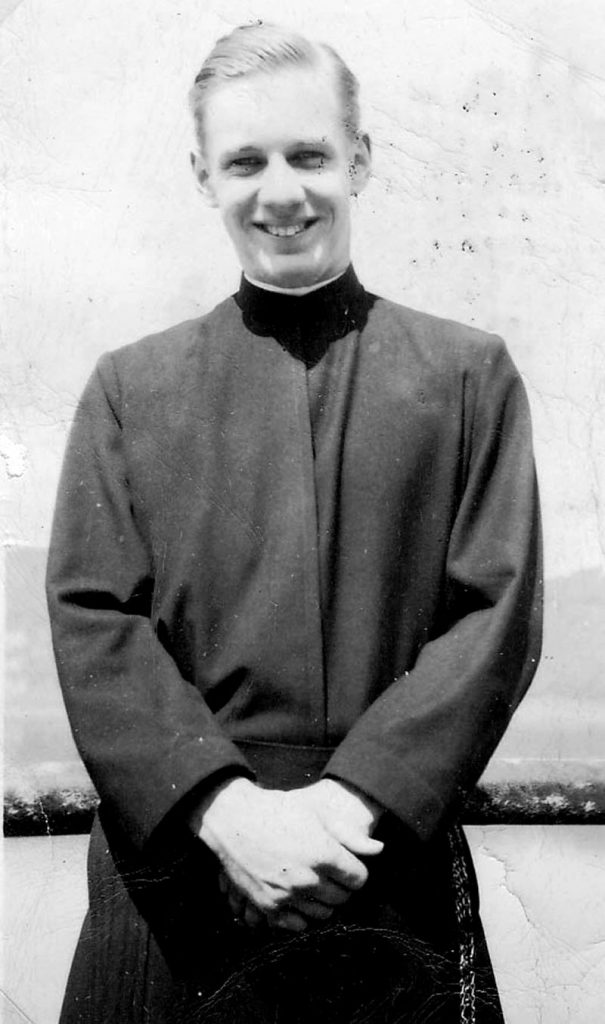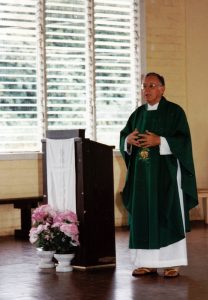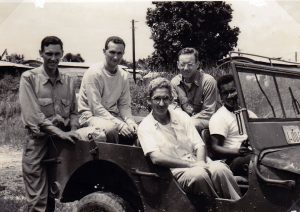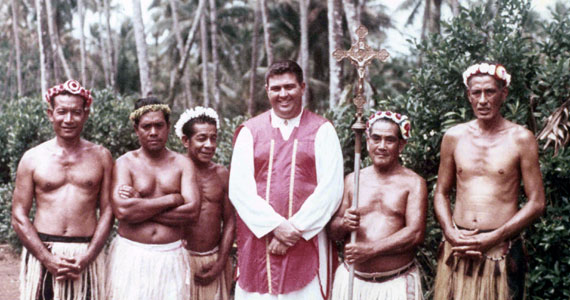Jack Curran: The Fading of an Old Trooper
“Old soldiers never die; they just fade away.” Douglas McArthur used this saying to describe himself after his removal from the Korean War in the 1950s, but it could just as easily apply to Jack Curran. Jack did die, on January 4 this year, but only after a long decade of fading away due to his Alzheimer’s. He may not have intended it to happen that way, but Jack certainly made good on his promise to surrender to the Lord his “mind and memory” along with life and liberty. Not only that, but he did it with his characteristic good grace. His caretakers at Murray-Weigel loved him, people there say.
Jack had been a fixture in Micronesia for more than half a century. He made his debut in 1952 when he arrived as one of the first two Jesuit scholastics to teach at the newly opened Xavier High School.
When he returned to the islands in 1963 after ordination, with his licentiate in canon law in hand, he became acting principal of Xavier High School for a half year. Not long afterwards he returned to take over the job for six more years. That’s where I came to know him. He was my boss during my earliest years in the Micronesia–when I began regency at Xavier in 1963, and when I returned after ordination to resume teaching at the school.
Jack could criticize without scolding, I quickly learned. He could challenge a well-intentioned but clumsy newcomer, who arrived with many more answers than questions, but he could do so without discouraging him. If not for his good-natured teasing, I might have done what many of my contemporaries assigned to overseas missions were doing at the time and simply returned to the US.
Xavier High School was not Jack’s only assignment in the islands. He spent years in Pohnpei, always in the shadow of Fr Bill McGarry, his elder by a year or two. He also lived in Manila for a few years while coordinating the education office of the East Asian-Pacific Assistancy. Then he succeeded his mentor Bill McGarry as superior of the Micronesian Region during the early 1980s.
Wherever he went, Jack was more than a friendly face. He was a welcoming presence to everyone he met. Jack told me once, with a smile on his face, that my saving grace–the only thing that kept me from being insufferable–was the one-quarter Irish ancestry I claimed (the rest being Teutonic). Yet, his Gallic world was large enough to embrace the Germans he had lived with during his tertianship, not to mention Pohnpeians, Chuukese, Filipinos, Southeast Asians of every description, as well as the Japanese sisters who began ministry in the islands while he was superior on Pohnpei. Jack could be genuinely called not only a man for all seasons, but a pastor for all nations.
I’ll always remember him as a teacher and a friend. His friendly counsel saved me from some of the worst of my mistakes in the years we worked together. But his influence didn’t end there. A few years ago, when I brought two close friends of his to see him in the infirmary, it was clear that he did not recognize them at all. But he still chatted with them at some length, always with that smile on his face, never giving a hint of the confusion he must have felt. Along with everything else he has done, Jack has given us an example of how to fade off the stage slowly but gracefully.

